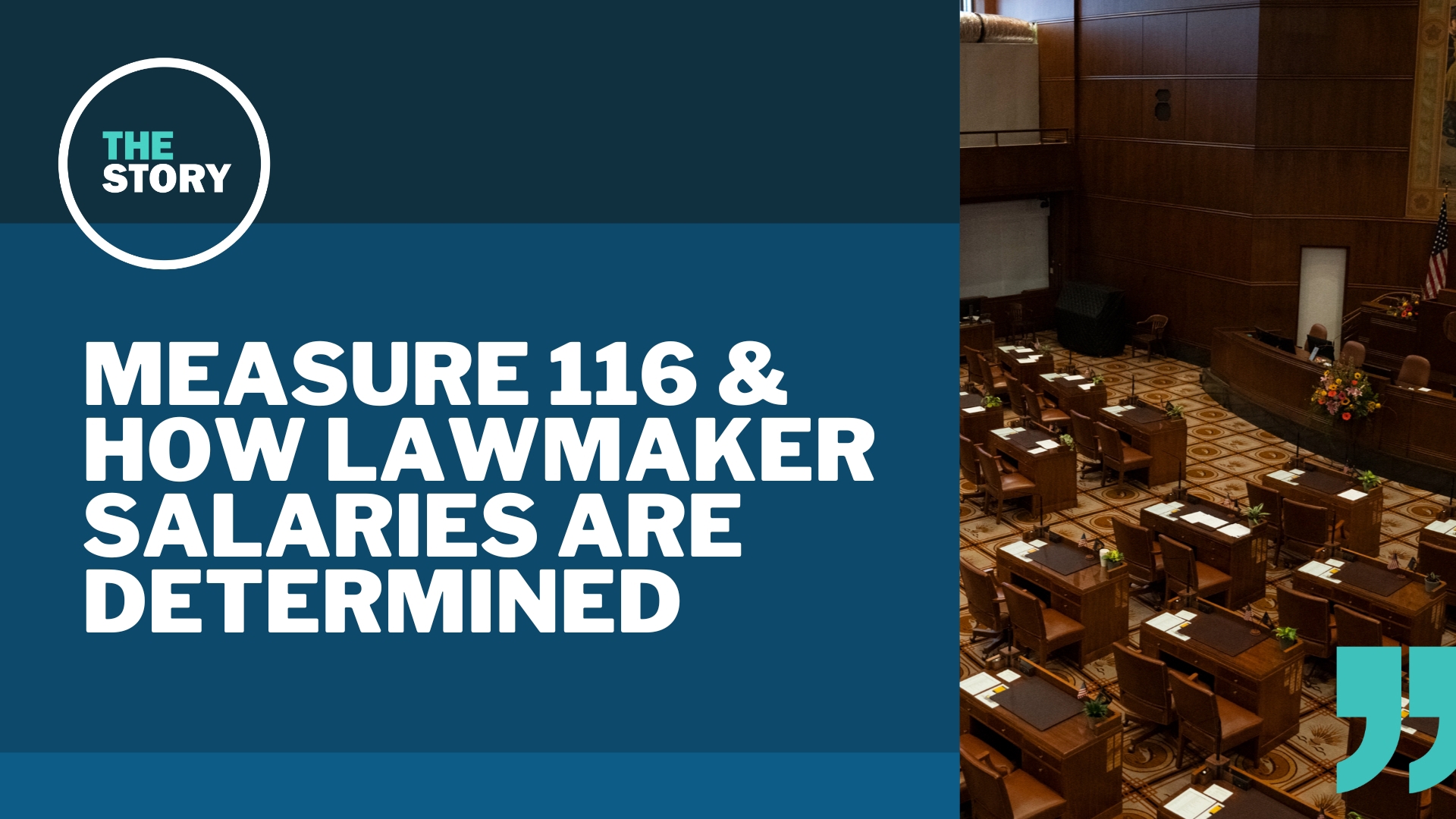SALEM, Ore. — In Oregon, the power to decide how much state elected officials get paid has long been in the hands of state elected officials. But in a little under two weeks, Oregon voters will have an opportunity, via "yay" or "nay" vote, to decide whether that will continue or place it in the hands of someone else.
If approved, Measure 116 would create an amendment to the state's constitution that would require the creation of an independent commission. That commission would then decide the salaries of the governor, the state legislature and other state elected officials.
The issue of state-elected officials’ pay is a bit of a sticky political problem. Back in 2022, the Democratic lawmakers stepped down from their positions, saying that between the hours and the pay, they could no longer afford to serve in the state legislature.
"Between bills, student loans, and two kids in daycare, I've never been able to stop working my second job during session," Rep. Karin Power, D-Milwaukie, said in 2022. "So, I dropped to part-time during session for my second job, which means I work all the time. It places an enormous care giving burden on my wife and my in-laws because I will turn around and continue working for my primary job through the weekend to catch up.
"We can't make ends meet on the legislative salary alone. That wouldn't be financially feasible for us. So, it became increasingly clear this public service was not sustainable for my family."
At the time, Oregon lawmakers considered giving themselves a pay bump as a way to try and get around the low-pay issue and to allow younger, more diverse people to be able to afford to serve, but too many of them thought it looked self-serving, and the plan failed.
While many people agree the current system isn't ideal, not everyone is convinced Measure 116 is the solution.
For supporters of the measure, the idea is to remove politicians from the process of deciding their pay. Some — like the Democratic Party of Oregon, which endorsed the measure — say it follows the lead of 22 other states who have already established independent elected official salary commissions.
Opponents of the measure argue it would be an easy way for elected officials to give themselves a raise. There is no requirement that the commission be bi- or nonpartisan and few guardrails on who qualifies for the position.
ALSO ON THE BALLOT: Measure 118: Here's what the 'Oregon Rebate' would do
Earlier this month, Willamette Week recommended voters say "no" to Measure 116, saying its biggest red flag is that once the commission makes a decision, that's final; there's no review or appeal process to dispute the decision. And for that, they gave a firm "no."

